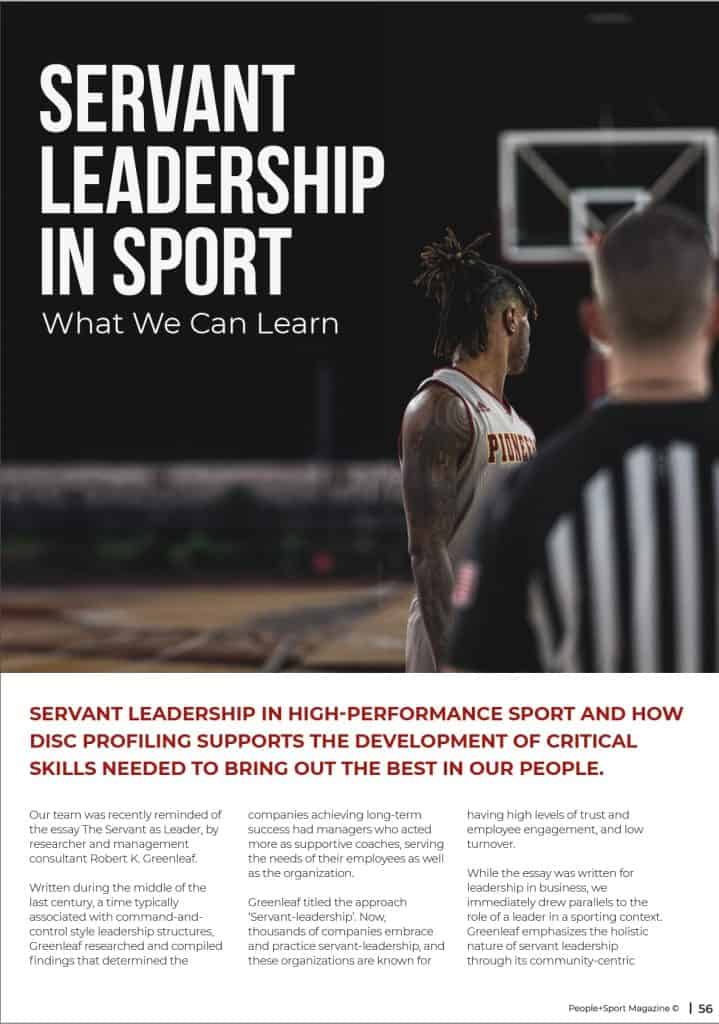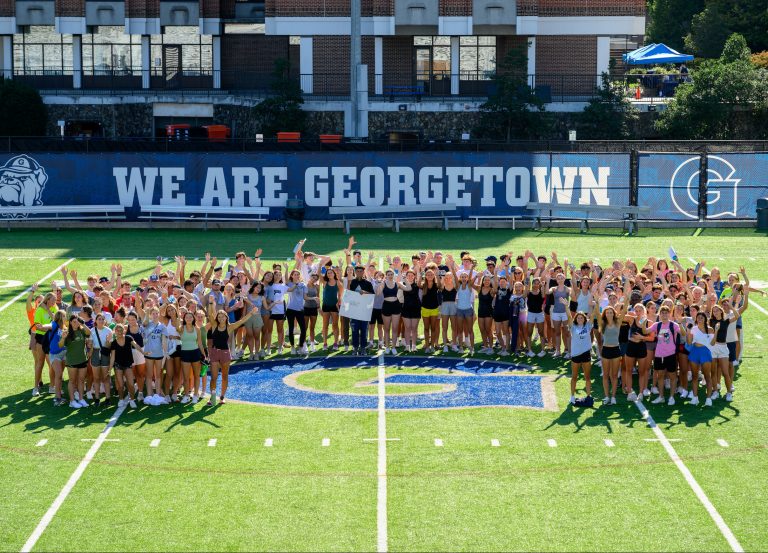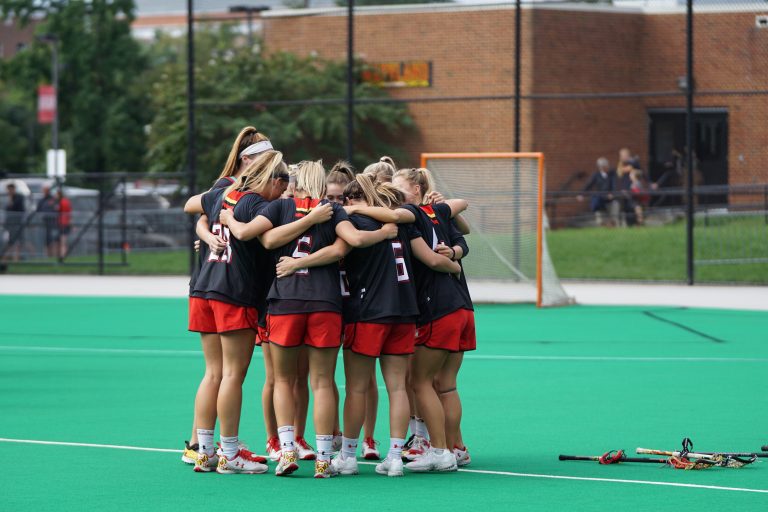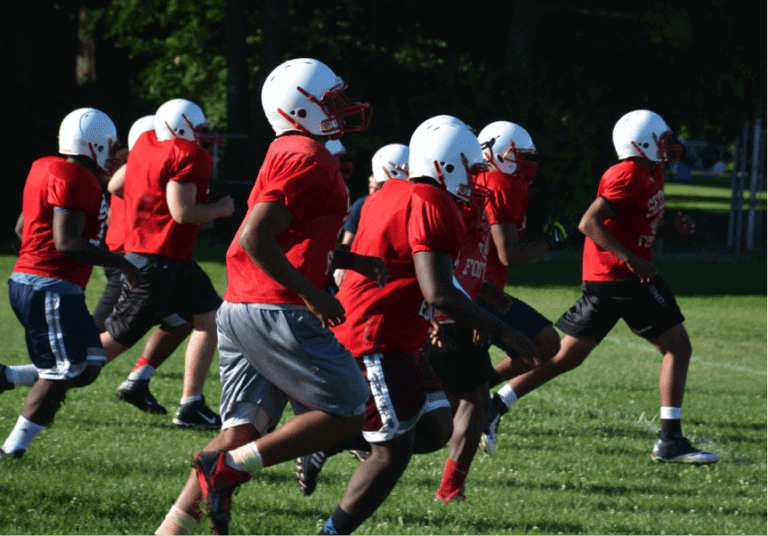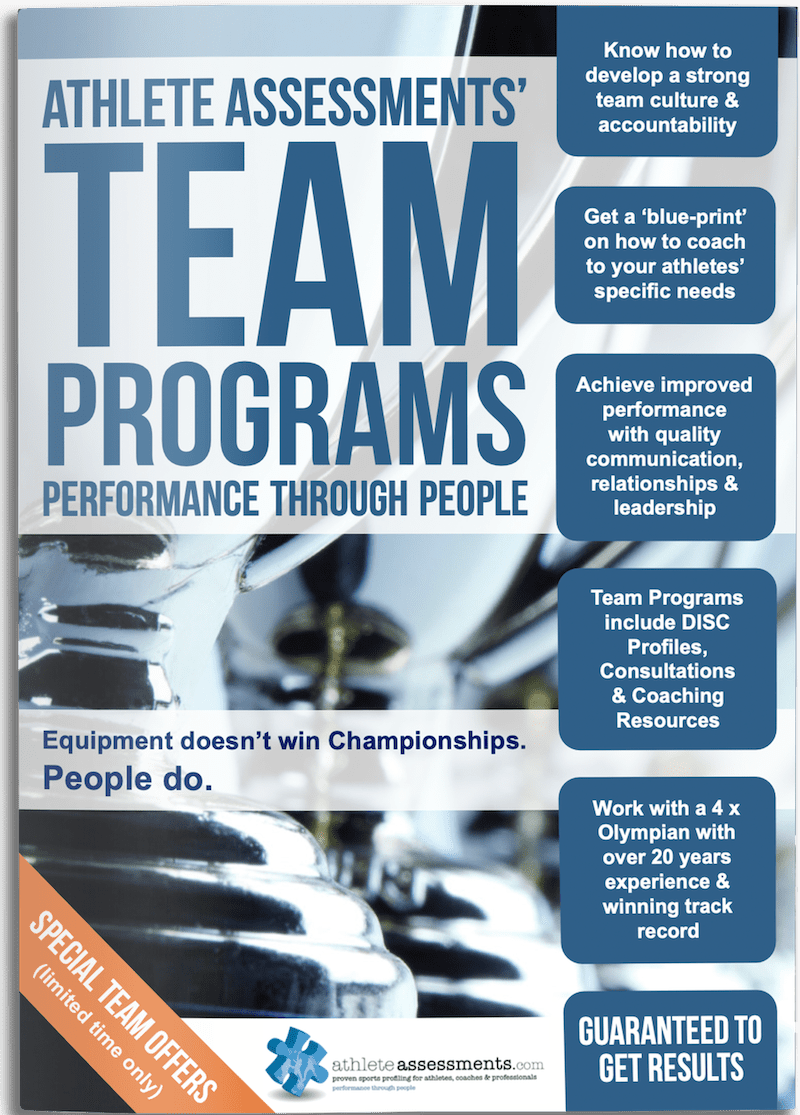Our team was recently reminded of the essay The Servant as Leader, by researcher and management consultant Robert K. Greenleaf.
Written during the middle of the last century, a time typically associated with command-and-control style leadership structures, Greenleaf researched and compiled findings that determined the companies achieving long-term success had managers who acted more as supportive coaches, serving the needs of their employees as well as the organization.
Greenleaf titled the approach ‘Servant-leadership’. Now, thousands of companies embrace and practice servant-leadership, and these organizations are known for having high levels of trust and employee engagement, and low turnover.
While the essay was written for leadership in business, we immediately drew parallels to the role of a leader in a sporting context. Greenleaf emphasizes the holistic nature of servant leadership through its community-centric focus, the sharing of power, and involvement in decision-making.
Sounding familiar? We thought so!
Through the experiences and lessons in becoming a leader, we’re often aware of the environments that bring out our individual best performances, and what we need to systematically drive our success. But what about the environments that draw the best performances out of the people we work with?
This pattern of questioning, or ‘inside-out’ understanding of performance, would be typical of a servant-leader. The structure of servant-leadership requires leaders to focus attention away from themselves and put the spotlight on their people – growing and empowering them first.
Greenleaf studied the practices and behaviors of servant-leaders in business for decades, and what he noticed was this: servant-leaders were more motivated, creative, and productive, leading to improved results. As a model, servant-leadership is naturally aligned with athlete-centered coaching and athlete leadership development, where the coach as leader relies on the performance of their team to achieve winning results. In fact, servant-leadership is the foundation of effective coaching and leadership in any environment.
What does servant-leadership look like?
In action, regardless of the context or level of relationship, effective interaction starts with listening to the needs and preferences of others. Only by truly understanding our people can we begin to shape a program of engagement or improvement that will be effective for them. By establishing programs and practices that are tailored to the team and individuals within it, a leader can create environments that enable success.
Questions a servant-leader asks themselves about their people:
- What environment is most productive for each individual? Do they thrive working/practicing alone, or does being in a group work better for them?
- Do they rely on routines or do they like change in their daily structure?
- What pace do they prefer? Do they respond and make decisions quickly, or do they need time to prepare and consider?
- What is their priority – people or tasks?
- How do they communicate, and how do they like to be communicated with? Do they get straight to the point, or do they need to understand the circumstances surrounding a situation and everyone’s responsibilities in it?
- What are their strengths, what are they good at?
Notice in the term ‘servant-leader’ the word ‘servant’ is first. When our first consideration is to serve, the relationship is for the other person’s benefit. Though to be effective in doing so, we must first understand our own behavioral preferences to ensure we don’t inadvertently put our own needs first, by acting in a way that works for us, but may not be best for the other person.
When we talk about being aware of our behavioral preferences, it’s important to note that we are talking about behavior and not personality.
What’s the difference between the two? Personality is who we are, meaning it is much more rigid and fixed; it’s not something we are trying to change. Whereas behavior is the way we do things, meaning it can be flexible and adapted, depending on the situation or environment we are in. This opens up the possibility of using different actions and approaches to get better outcomes. But before we delve into behavioral adaptability, let’s first consider some ways to become aware of our own behavioral preferences.
Strategies for self-awareness:
- Video yourself in action, watching for patterns in the way that you do things.
- Ask trusted peers, coaches, or colleagues for specific feedback on what they notice.
- Regular journaling or diary entries designed to focus on specific behaviors you feel or notice.
- Analyze your success record with respect to a specific outcome and recall the actions you took to get that result.
- Take a Behavioral Assessment, like Athlete Assessments’ DISC Profiles, and reflect on its findings, noticing the patterns it highlights.
One of the advantages of assessments is their efficiency and tailored insights they deliver into the behaviors of ourselves and others. Athlete Assessments’ DISC Profiles detail an individual’s unique spread of strengths, their preference for pace, the way they communicate and build relationships with the people around them. Importantly, the reports also include what each individual needs to be successful, what motivates them, and what they find stressful. The reports depict an individual’s behavior in degrees, visually and narratively, across the four DISC quadrants representing the four primary styles of behavior; Dominance, Influence, Steadiness, and Conscientious. Learn more about communicating with the different DISC Styles here.
Why and when would we change our behavior?
Ideally, you would never be asked to change your personality, but coaches will often adapt how they do things and regularly ask their athletes to alter what they are doing or change their behavior, to produce a better result. The skill lies in knowing when and how to temporarily adjust our behavior.
Using the DISC framework creates an understanding of your own preferences, which can help you identify similarities and differences in others too, enabling you to make an educated estimation about which style individuals might be.
With this knowledge, we may change our behavior to enhance our communication with another person. When practiced often, we might do this subconsciously, but being more aware of when we do allows us to make effective adaptations, more often. For example, a defining characteristic of any individual’s behavior is their preference for pace. Depending on the pace you notice in them, a simple adaptation, like slowing your delivery so as not to leave them behind, or speaking in a faster more upbeat manner which they can easily relate to, can have an enormous impact on interpersonal exchanges.
Understanding others goes beyond just knowing how to communicate with them; our knowledge of that person can be applied to create situations that are more meaningful, productive, and stimulating for the individual.
While the concept of servant-leadership was originally applied to business, its principles and ideals are equally valuable in optimizing high-performance in sport. Servant-leadership and it’s requisite components of self-awareness and adaptation are naturally aligned with athlete-centered coaching and develop an ideal framework for leading as a coach or developing leadership in your athletes.
Where to from here?
At Athlete Assessments everything we do stems from the philosophy of involvement, ownership, and accountability. When we work with high-performance teams, to first develop self-awareness, improve their communication and team cohesion, and ultimately achieve greater results. Find out how we can support the development of your coaches or athlete leaders with our Team Programs, or bring the expertise internally with our DISC Accreditation Program.
Recommended Articles
Executive Director of the Georgetown Cooper Athletics Leadership Program, Al Lattell, on how he builds vital leadership skills at the micro level through institutional development initiatives at the macro.
We sat down with Associate Dean of Undergraduate Programs and O’Bleness Associate Professor at Ohio University’s College of Business, Dr. Jim Strode, to talk all things leadership, academics, and student development.
Vice President of Mental Health and Wellness for the WTA and Founder of Ahlgren Bedics Consulting, LLC, Dr. Becky Ahlgren Bedics unpacks the how-to behind empowering athletes to lead in roles that complement their natural style.
The coach-athlete relationship, a research backed non-negotiable when it comes to getting the best and sustained performance out of your athletes.
LOVE THIS ARTICLE?
DOWNLOAD YOUR FREE, PRINTABLE PDF COPY BY FILLING OUT THE FORM BELOW!
